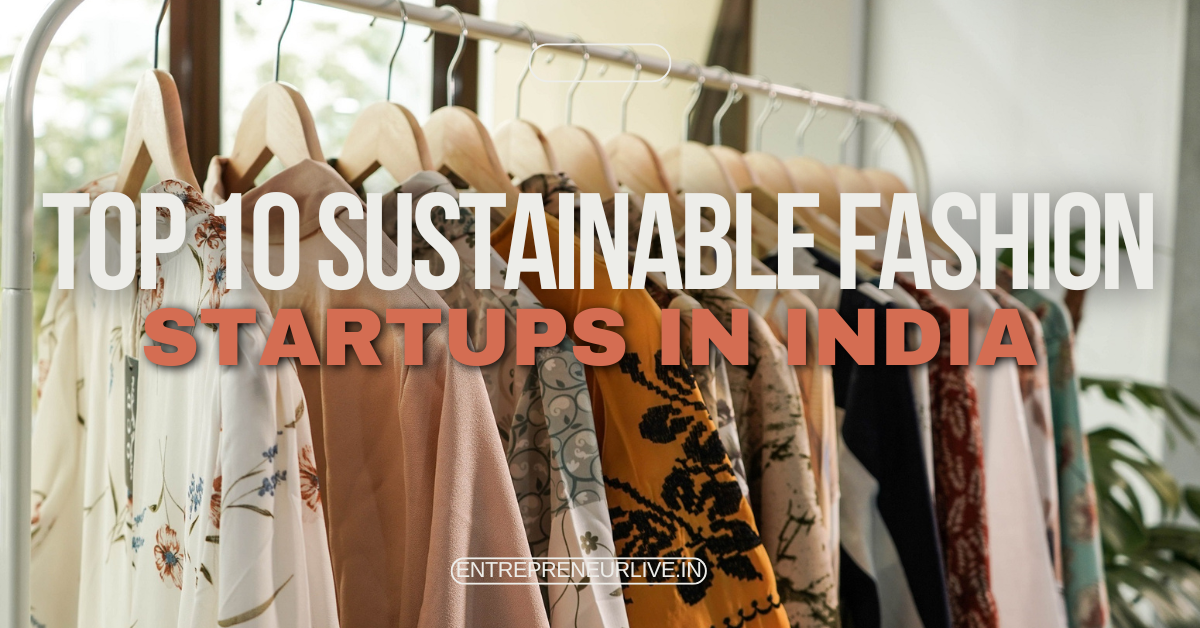
Top 10 Sustainable Fashion Startups in India, Explore the top 10 sustainable fashion startups in India leading the eco-friendly revolution in the fashion industry. Discover how these innovative companies are creating stylish, high-quality apparel with a minimal environmental footprint, promoting ethical production, and inspiring industry-wide change.
India’s fashion industry is experiencing a green revolution as sustainable fashion startups emerge to address environmental and ethical concerns. These startups are pioneering eco-friendly practices, from using organic and recycled materials to promoting fair trade and ethical production methods. By integrating sustainability into their business models, these companies are redefining the future of fashion, making it more responsible and conscious. Here is an introduction to the top 10 sustainable fashion startups in India, which are leading the charge in creating stylish, high-quality apparel with a minimal environmental footprint. These trailblazing enterprises are not only catering to the growing demand for sustainable fashion but also inspiring change within the industry and among consumers.
Table of Contents
1.Doodlage
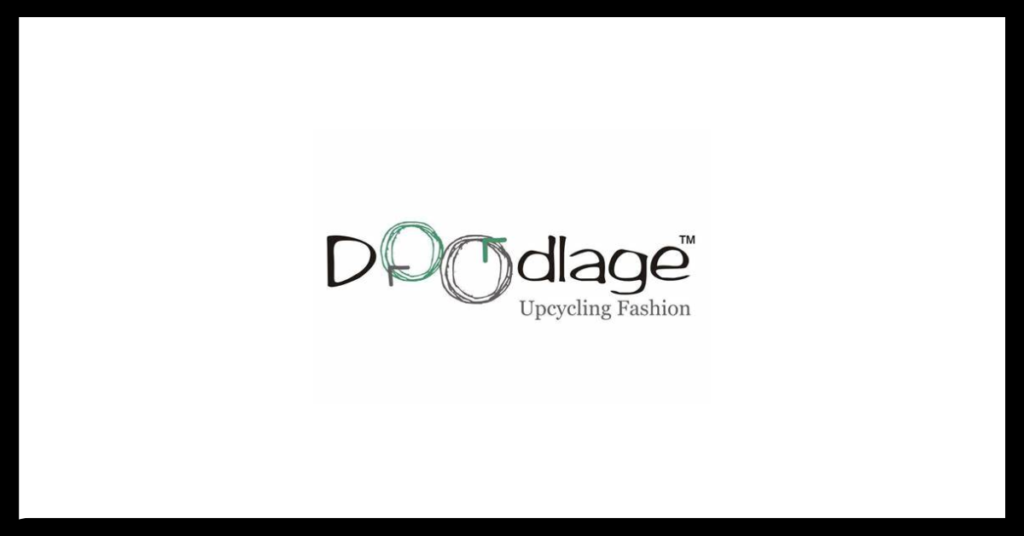
| Feature | Details |
|---|---|
| Founded | 2012 |
| Founder | Kriti Tula |
| Key Products | Apparel made from upcycled textile waste |
| Materials Used | Deadstock fabric, recycled cotton, and other sustainable materials |
| Notable Practices | Transforming textile waste into unique fashion pieces, incorporating playful patchwork designs |
| Sustainability Focus | Waste reduction, recycling, and upcycling |
| Website | Doodlage |
Founded in 2012 by Kriti Tula, Doodlage is a pioneer in upcycling and recycling textile waste into unique fashion pieces. The brand emphasizes responsible consumption and creates one-of-a-kind garments from discarded fabrics.
Known for transforming textile waste into unique fashion pieces, Doodlage utilizes deadstock fabric to create patchwork designs and sustainable garments.
2.The Terra Tribe
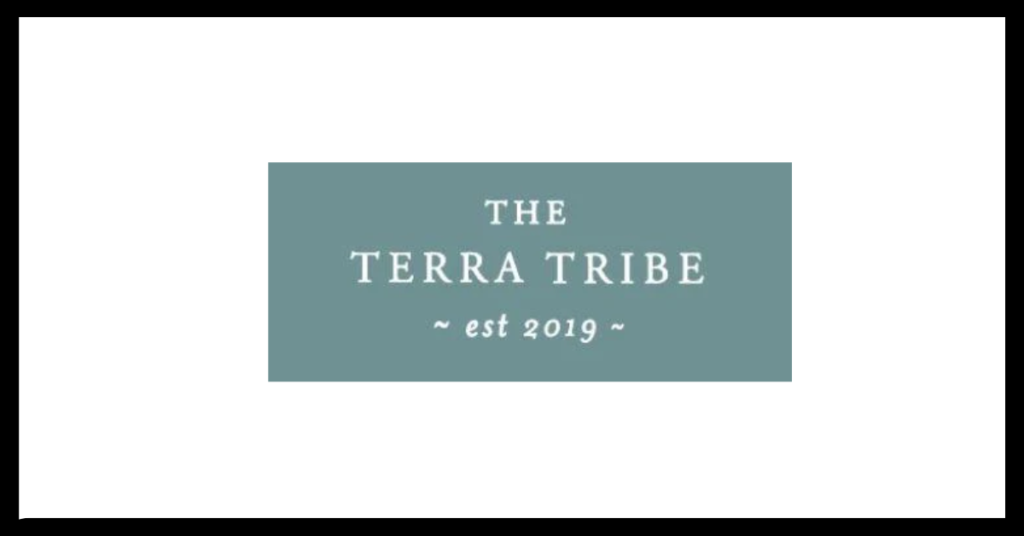
| Feature | Details |
|---|---|
| Founded | 2020 |
| Founder | Not publicly listed |
| Key Products | Sustainable clothing |
| Materials Used | Tencel, organic cotton, hemp |
| Notable Practices | Use of eco-friendly materials, focus on sustainable and ethical production |
| Sustainability Focus | Organic and eco-friendly materials, responsible production |
| Website | The Terra Tribe |
Founded in 2020, The Terra Tribe focuses on creating stylish and sustainable clothing using eco-friendly materials. The brand aims to provide high-quality fashion while minimizing environmental impact.
This brand focuses on using organic and eco-friendly materials like Tencel to create stylish and sustainable clothing items.
3.Nicobar
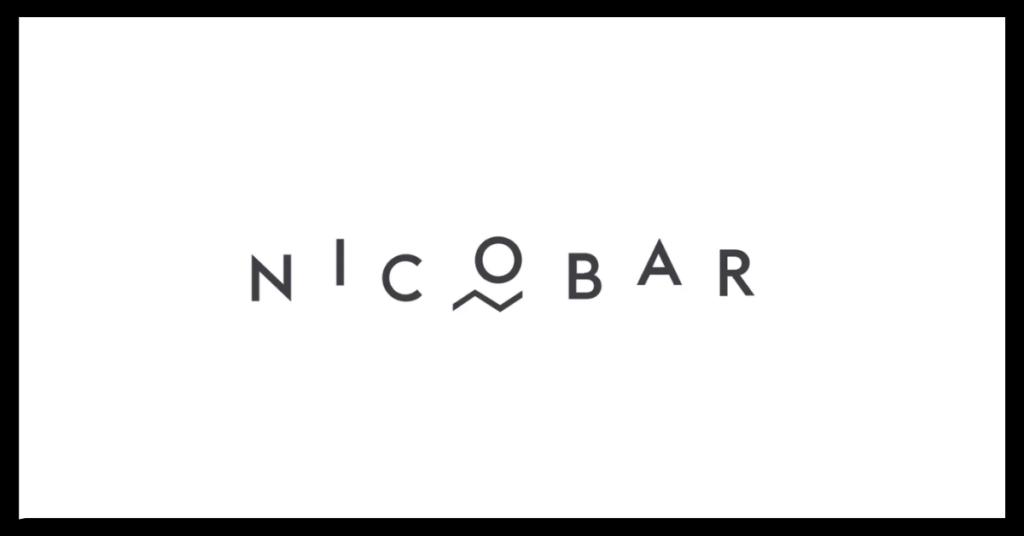
| Feature | Details |
|---|---|
| Founded | 2016 |
| Founders | Simran Lal and Raul Rai |
| Key Products | Minimalistic apparel, accessories, and home decor |
| Materials Used | Bamboo, Tencel, organic cotton |
| Notable Practices | Eco-friendly production, minimalistic designs, sustainable packaging |
| Sustainability Focus | Chemical-free production, use of natural and organic materials |
| Website | Nicobar |
Launched in 2016 by Simran Lal and Raul Rai, Nicobar offers minimalistic designs crafted from sustainable fabrics. The brand prioritizes eco-friendly production and chemical-free materials.
Emphasizing minimalistic designs, Nicobar uses sustainable fabrics such as bamboo and TENCEL, ensuring their production process is free from harmful chemicals.
4.Ka-Sha

| Feature | Details |
|---|---|
| Founded | 2012 |
| Founder | Karishma Shahani Khan |
| Key Products | Apparel with a focus on craftsmanship |
| Materials Used | Organic cotton, recycled fabrics |
| Notable Practices | Heart to Haat project, waste management innovations |
| Sustainability Focus | Upcycling, ethical production |
| Website | Ka-Sha |
Founded by Karishma Shahani Khan in 2012, Ka-Sha integrates sustainability into every aspect of its production. The Heart to Haat project is notable for its innovative waste management practices.
This brand integrates sustainability at every step, from material selection to production and distribution. Their Heart to Haat project innovates waste management.
5.Grassroot by Anita Dongre

| Feature | Details |
|---|---|
| Founded | 2015 |
| Founder | Anita Dongre |
| Key Products | Traditional and contemporary apparel |
| Materials Used | Organic cotton, silk |
| Notable Practices | Supporting female artisans, preserving traditional crafts |
| Sustainability Focus | Ethical production, use of sustainable materials |
| Website | Grassroot by Anita Dongre |
Grassroot by Anita Dongre, founded in 2015, focuses on preserving traditional Indian crafts and supporting female artisans. The brand uses sustainable materials to create contemporary and traditional apparel.
This label supports female artisans in Indian villages, preserving traditional crafts while using sustainable materials like organic cotton and silk.
6.Oshadi

| Feature | Details |
|---|---|
| Founded | 2016 |
| Founder | Nishanth Chopra |
| Key Products | Apparel made from organically grown cotton |
| Materials Used | Organic and regenerative cotton |
| Notable Practices | Seed-to-sew supply chain, regenerative agriculture |
| Sustainability Focus | Organic farming, circular fashion |
| Website | Oshadi |
Founded by Nishanth Chopra in 2016, Oshadi adopts a seed-to-sew approach, growing its own organic cotton and focusing on regenerative agriculture to ensure a sustainable supply chain.
A vertically integrated brand, Oshadi grows its own organic cotton and focuses on regenerative agriculture to ensure a sustainable supply chain.
7.Maati by Neha Kabra

| Feature | Details |
|---|---|
| Founded | 2017 |
| Founder | Neha Kabra |
| Key Products | Handwoven fabric apparel |
| Materials Used | Handwoven fabrics, natural dyes |
| Notable Practices | Collaborations with local artisans, minimal water and energy use |
| Sustainability Focus | Ethical production, fair wages, natural dyeing processes |
| Website | Maati by Neha Kabra |
Launched in 2017 by Neha Kabra, Maati collaborates with local artisans to produce handwoven fabrics dyed with natural substances, ensuring minimal environmental impact.
Based in Udaipur, Maati works with local artisans to produce handwoven fabrics dyed with natural substances, ensuring minimal environmental impact.
8.11.11 / eleven eleven
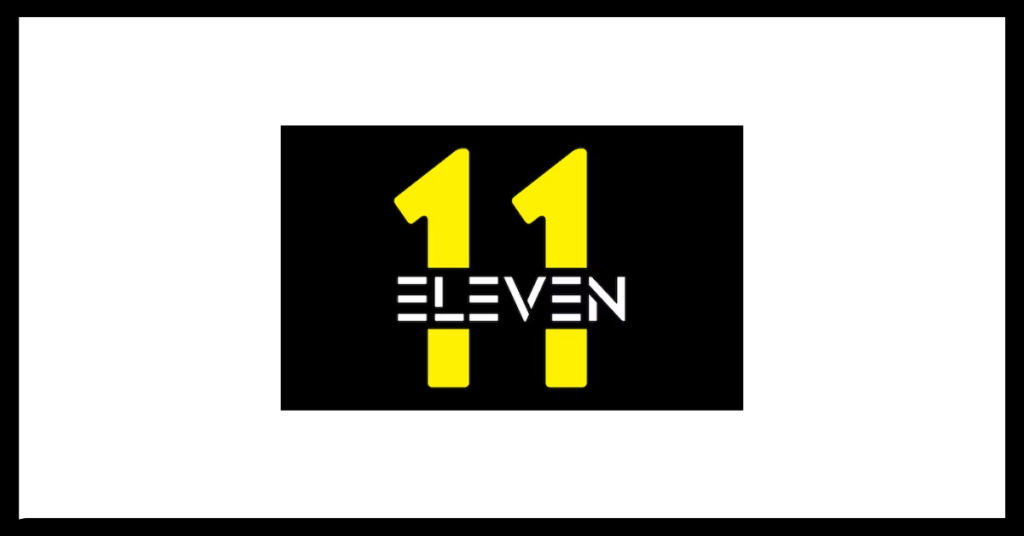
| Feature | Details |
|---|---|
| Founded | 2009 |
| Founders | Mia Morikawa and Shani Himanshu |
| Key Products | Minimalist apparel |
| Materials Used | Indigenous cotton, natural dyes |
| Notable Practices | Hand spinning, handloom weaving, tie-dye, hand painting |
| Sustainability Focus | Use of traditional techniques, natural and organic materials |
| Website | 11.11 / eleven eleven |
Founded in 2009 by Mia Morikawa and Shani Himanshu, 11.11 / eleven eleven celebrates slow fashion, using indigenous cotton and traditional techniques like hand spinning and natural dyes.
This brand celebrates slow fashion, using indigenous cotton and traditional techniques like hand spinning and tie-dye, all colored with natural dyes.
9.Mio Borsa

| Feature | Details |
|---|---|
| Founded | 2018 |
| Founder | Priyanka Lugani |
| Key Products | Vegan leather accessories |
| Materials Used | Pineapple stem fibers, other vegan leathers |
| Notable Practices | Cruelty-free production, use of innovative sustainable materials |
| Sustainability Focus | Vegan materials, ethical production |
| Website | Mio Borsa |
Founded in 2018 by Priyanka Lugani, Mio Borsa specializes in vegan leather accessories made from sustainable materials such as pineapple stem fibers.
Specializing in vegan leather accessories, Mio Borsa uses sustainable materials like pineapple stem fibers to create stylish and cruelty-free handbags.
10.Sui

| Feature | Details |
|---|---|
| Founded | 2018 |
| Founder | Not publicly listed |
| Key Products | Sustainable clothing |
| Materials Used | Organic cotton, hemp, linen, Tencel |
| Notable Practices | Collaboration with NGOs, herbal dyeing |
| Sustainability Focus | Support for underprivileged women, use of sustainable and handwoven textiles |
| Website | Sui |
Established in 2018, Sui collaborates with NGOs and uses herbal dyes to produce sustainable clothing made from organic and handwoven textiles, supporting underprivileged women in the handloom sector.
A slow fashion brand collaborating with NGOs, Sui uses organic and handwoven textiles treated with herbal dyes to produce eco-friendly clothing.
FAQs and answers for Top 10 Sustainable Fashion Startups in India
1. Doodlage
Q: What is Doodlage’s main focus?
A: Doodlage focuses on transforming textile waste into unique, stylish fashion pieces through upcycling and recycling deadstock fabrics.
Q: What materials does Doodlage use?
A: Doodlage uses deadstock fabrics, recycled cotton, and other sustainable materials.
Q: How does Doodlage contribute to sustainability?
A: Doodlage reduces waste by using discarded fabrics, promotes recycling, and creates timeless pieces that reduce the need for fast fashion.
Q: Where can I buy Doodlage products?
A: You can purchase Doodlage products on their official website.
2. The Terra Tribe
Q: What materials does The Terra Tribe use?
A: The Terra Tribe uses eco-friendly materials such as Tencel, organic cotton, and hemp.
Q: What kind of products does The Terra Tribe offer?
A: The Terra Tribe offers sustainable clothing designed with eco-friendly materials.
Q: How does The Terra Tribe ensure sustainable production?
A: The Terra Tribe focuses on using organic and eco-friendly materials and ensures that their production process adheres to sustainable and ethical standards.
Q: Where can I find more information about The Terra Tribe?
A: You can visit their official website.
3. Nicobar
Q: What is the main focus of Nicobar?
A: Nicobar emphasizes minimalistic designs using sustainable and eco-friendly materials.
Q: What materials does Nicobar use in their products?
A: Nicobar uses bamboo, Tencel, and organic cotton in their products.
Q: How does Nicobar practice sustainability?
A: Nicobar ensures chemical-free production, uses natural and organic materials, and implements sustainable packaging practices.
Q: Where can I shop for Nicobar products?
A: Nicobar products are available on their official website.
4. Ka-Sha
Q: What sets Ka-Sha apart in sustainable fashion?
A: Ka-Sha integrates sustainability at every step, from material selection to production and distribution, and innovates waste management through their Heart to Haat project.
Q: What materials does Ka-Sha use?
A: Ka-Sha uses organic cotton and recycled fabrics in their products.
Q: How does Ka-Sha contribute to waste management?
A: Ka-Sha’s Heart to Haat project focuses on waste management innovations, transforming waste into usable products.
Q: Where can I learn more about Ka-Sha?
A: You can visit their official website.
5. Grassroot by Anita Dongre
Q: What is Grassroot by Anita Dongre known for?
A: Grassroot by Anita Dongre is known for supporting female artisans and preserving traditional Indian crafts while producing sustainable clothing.
Q: What materials are used in Grassroot’s products?
A: Grassroot uses organic cotton and silk in their products.
Q: How does Grassroot by Anita Dongre promote sustainability?
A: The brand promotes sustainability by using eco-friendly materials, ethical production methods, and supporting traditional craftsmanship.
Q: Where can I buy Grassroot products?
A: Grassroot products are available on their official website.
6. Oshadi
Q: What is Oshadi’s approach to sustainability?
A: Oshadi follows a seed-to-sew approach, growing their own organic cotton using regenerative agricultural practices.
Q: What kind of products does Oshadi offer?
A: Oshadi offers apparel made from organically grown cotton.
Q: What materials does Oshadi use?
A: Oshadi uses organic and regenerative cotton in their products.
Q: Where can I find Oshadi products?
A: You can purchase Oshadi products on their official website.
7. Maati by Neha Kabra
Q: What is the unique aspect of Maati by Neha Kabra?
A: Maati by Neha Kabra collaborates with local artisans to create handwoven fabric apparel with minimal environmental impact.
Q: What materials does Maati use?
A: Maati uses handwoven fabrics and natural dyes.
Q: How does Maati ensure sustainability?
A: Maati ensures sustainability through ethical production, fair wages for artisans, and the use of natural dyeing processes.
Q: Where can I buy Maati products?
A: Maati products are available on their official website.
8. 11.11 / eleven eleven
Q: What defines the 11.11 / eleven eleven brand?
A: 11.11 / eleven eleven is defined by its minimalist apparel made using traditional techniques and natural dyes.
Q: What materials does 11.11 use?
A: The brand uses indigenous cotton and natural dyes.
Q: How does 11.11 promote sustainability?
A: 11.11 promotes sustainability through the use of traditional techniques like hand spinning and handloom weaving, and by employing natural and organic materials.
Q: Where can I shop for 11.11 products?
A: You can find their products on their official website.
9. Mio Borsa
Q: What is Mio Borsa known for?
A: Mio Borsa is known for its vegan leather accessories made from sustainable materials.
Q: What materials does Mio Borsa use?
A: Mio Borsa uses pineapple stem fibers and other vegan leathers.
Q: How does Mio Borsa ensure ethical production?
A: Mio Borsa ensures ethical production by using cruelty-free materials and innovative sustainable practices.
Q: Where can I buy Mio Borsa products?
A: Mio Borsa products are available on their official website.
10. Sui
Q: What kind of products does Sui offer?
A: Sui offers sustainable clothing made from organic and handwoven textiles.
Q: What materials does Sui use?
A: Sui uses organic cotton, hemp, linen, and Tencel in their products.
Q: How does Sui support sustainability?
A: Sui supports sustainability by collaborating with NGOs, using herbal dyes, and supporting underprivileged women in the handloom sector.
Q: Where can I find more information about Sui?
A: You can visit their official website.
Last Updated on Wednesday, July 10, 2024 3:06 am by Entrepreneur Live Team

Leave a Reply